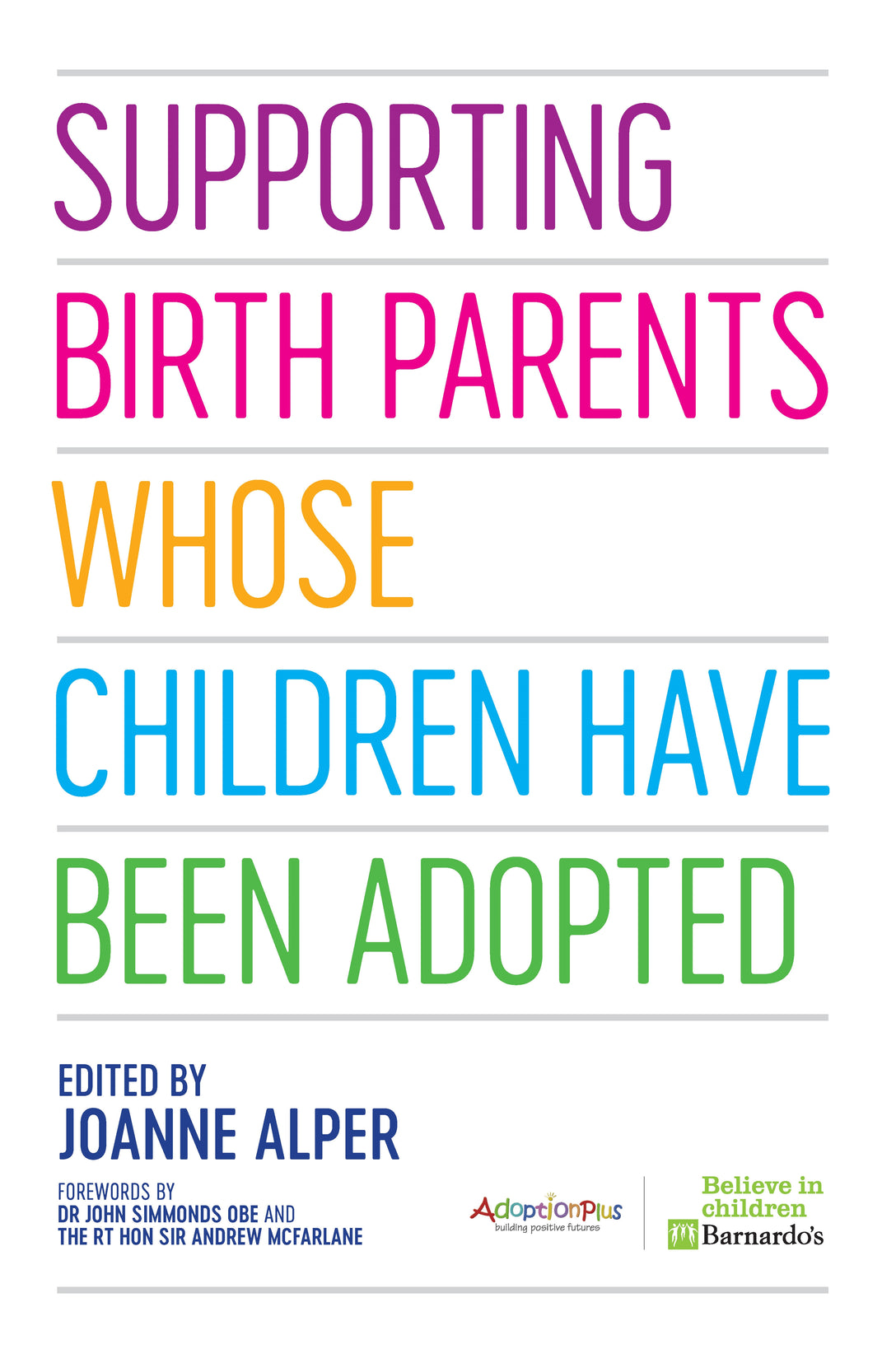
Press Reviews
Dr Sue Armstrong Brown, CEO of Adoption UK
Adoption can be the step that breaks a generations-long cycle of family dysfunction. Birth parents are all too often living with the consequences of the same early childhood trauma that adoptive parents recognise in their children, and unlike them, may never had access to a safe, stable and loving home. This book is an important contribution to the debate around extending our growing understanding of the importance of therapeutic support to everyone involved in adoption. It belongs on the desk of everyone involved in policy and practice for vulnerable families.
Teresa Williams, CAFCASS Director and member of the National Adoption and Special Guardianship Leadership Board
The needs of birth parents whose children have been adopted have not been sufficiently prioritised. This book shows powerfully why and how that matters for birth parents, for their children and for society. It does so in an engaging, rigorous, and balanced way that illustrates what can and is being done. Most importantly, it does so with humanity.
Maggie Jones, CEO, Consortium of Voluntary Adoption Agencies
This book opens our eyes to the lifetime impact of adoption on birth families. It is also a powerful testament of the huge benefits to children when birth relatives are supported to play an appropriate role in their lives, giving children confidence in who they are and adding to the security provided by their adoptive family. Everyone wanting to build a better future for children should read this book.
Cathy Ashley, Chief Executive, Family Rights Group
This book specifically focuses on the therapeutic needs of birth parents, whose children are adopted. The words of the mothers and fathers quoted in the book are haunting and help shine a light on the experiences of parents, whose children are permanently removed from them, and who for too long have been disregarded, shamed, ignored or vilified. The perspectives and voices of these birth parents is essential in understanding their need for therapeutic support and in shaping the nature of such support.
Mark Owers, Government Adviser on Looked After Children and Permanence and member of the National Stability Board and the Adoption and Special Guardianship Board
The system has long failed to support birth parents who lose their children to adoption. This book highlights a range of practice and experiences that together powerfully show we can help birth parents to overcome their loss and to be better prepared to parent in the future.
Andrew Christie, Chair, Adoption & Special Guardianship Leadership Board
Understanding the needs of birth parents and what works in providing them with the support and help to change is a moral imperative; but it can also deliver improved outcomes for them, their families and the children who have been removed from their care. So there is a good 'business case' too. This book is a collection of findings which makes a major contribution to this better understanding. A key component of the Adoption & Special Guardianship Leadership Board's 'modernising permanence' programme is to develop practice which helps adopted children and children subject to other 'permanence' orders better understand their origins and their past. The findings described in this book have a significant part to play in the development of that thinking.
Scott Casson-Rennie, Adoptive parent and co-host of the Adoption & Fostering Podcast
Adoption has changed, is changing and will continue to change. 'Supporting Birth Parents whose Children have been Adopted' really puts emphasis on adoption being a life long experience. It helpfully opens your mind to how it can be improved and done differently, and how working with birth families in a meaningful way can lead to a positive change. In an ideal world we would have no need for adoption, but we do not live in an ideal world, so we must concentrate on joining up the corners and multiple layers for everyone affected by adoption. This book provides a number of strategies to achieve that and should be referenced to all adults (including those thinking about adopting or working in adoption), so that we understand that one size can not and will not fit all.
